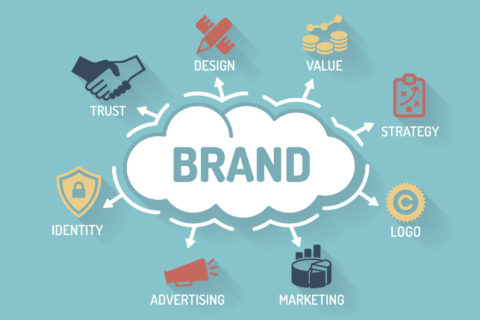How research and insight markets itself as an industry and how it markets its products – insights – to clients have been a hot topic of conversation in recent years, but how does this look going forward?
In the final feedback from our panel we see two consistent themes – a better outward facing image and a more engaging approach to client management – appear, whilst reminding us that ‘methods’ may be terminology of yesteryear.
I’d like to see 2017 as the year of engagement in insight marketing. Agencies need to do a better job of stakeholder communication and start treating the research project as a communications project. Research deliverables that don’t engage with the client are pointless and can have a butterfly effect on client engagement with research as a whole. Agencies need to start ensuring they have the communication and design skills in-house to achieve this. At the same time more research clients need to engage with the marketing of insights and do more to provide opportunities for their agencies to communicate the impact of research through their own work.
Research and insight is in the public eye like never before, but no one is taking responsibility for influencing that dialogue. A recent Research Now and ESOMAR study found that in the UK a significant majority of the public have an outdated view of market research, and a public with a better understanding of the depth of research can potentially do wonders for the industry. In 2017 it would be great to see industry associations such as ESOMAR and the MRS do more to engage the public with research. But that means ensuring we are using the right message for the audience. When we talk about impact we often talk about a business impact, a ROI on research spend. In order to engage the public we need to talk about the social and cultural impact of research, something we don’t do enough of.
Adam Warner, Keen as Mustard
This year research and insight teams (client or agency) need to think beyond the debrief and make insight actionable. We’ve talked about it before but it still hasn’t come to light for many in the industry. What good is insight without action? Let’s think two steps ahead and then ask the critical question of our data: what happens next? Achieve this and the industry will speak for itself without the hooks and gimmicks. It’s time we delivered practical recommendations based on a rich understanding of people – understanding beyond a narrow view of ‘consumer x in sector a’.
Kate Rhodes, Join the Dots
There is no better way of convincing people of the value of research than to learn about other people’s successes. Research methods are important but we shouldn’t be obsessed by them. Buyers of market research want to know that our methods really work. However, it is case studies and testimonials that inspire confidence. The public face of market research for many people is political polling. This relatively small side of the industry had a bad press in 2016. In 2017 we should talk about the commercial successes brought about through research and insights.
Paul Hague, B2B International
My insight marketing keyword for 2017 is Empathy. 2016 showed with great clarity how human behaviour does not respond to reason, fact or data alone. Brexit, Trump, VW or Mylan. Rules bent. Truths stretched. Lies told. Commercial success is becoming increasingly reliant on the ability to find the intersection beteen the consumer context and the corporate truth. The connecting of these realities is an art and empathy is generated when naturally occurring relevance is amplified. Empathy should be a core business strategy, founded on an understanding of the human condition, which research and insight teams are uniquely placed to validate.
Matthew Sell, Northstar Research Partners
I’d say we’re professionalizing slowly but surely, and this will continue in 2017. It seems to be sinking in more broadly that marketing professionals – dedicated and with expertise – are needed to manage the whole business development and profile raising process.
Innovative MR players and start-ups may well accelerate this – as start-ups go through their financing rounds, and the equity owners attach a value to brand, insisting on professional branding/ marketing plans, so money is freed up to raise awareness levels.
The overall approach to content will likely continue to modernize in 2017, becoming more video-lead, visualized, and with an overall broader business outlook – more and more clients are hybrid researchers/ analytics folk, often people in marketing.
Case studies will beat methodological myopia.
You can see the broad shift in a review of MR websites – compare some of the legacy MR sites (admittedly much larger and more complex) with a start-up such as Berlin based Dalia. A world of difference – the one very orderly, structured, the other more inspirationally-driven.
One prediction I would make where I see little change likely in 2017 is in the area of sales. There will still be people making repeated cold calls, who have little understanding of what our industry is about, or how to be a charming, persuasive salesperson. Why this lack of optimism? I saw no change in that area throughout 2016 at all. Weird, because it’s arguably one of the most important functions in a business.
Edward Appleton, Happy Thinking People
An industry identity crisis, greater scrutiny after questionable polling results and a seemingly new world paradigm of political uncertainty and social unease; 2017 is the year for market research to save the world. We understand people, we read between the numbers and now, more than ever, the world needs us. Brands, politicians and people alike will look to us to provide insight, direction and purpose. Armed with data scientists, new methodologies and technologies, and our trademark curiosity, we need to demonstrate how we can read the patchwork of human behaviour and provide guidance in an uncertain world.
Danielle Todd, Relish Research
Researchers have vastly underused their marketing expertise and it’s about time we took advantage of our skills to help ourselves. I hope this year we can be better teachers and demonstrate the usefulness and relevance of our work to the public. We need non-researchers to see that there is no perfection in our predictions but rather a genuine desire to better understand and help society, whether that means better products and services, or more informed political and social conversations.
Annie Pettit



1 comment
The industry experts sharing their concerns and thoughts to promote market research is good for this industry. Engagement between the “buyer” and “seller” is no doubt critical but at the same time engagement between the seller (agency) and target group is crucial. Since, this ensures authenticity of data and helps improve industry credibility amongst all stakeholders. Many agencies have resources in building infrastructure suitable for this activity but somewhere down the line it is vulnerable and exposed to weakness. Each research activity be it consumer, social or industrial research, requires specialists right from design to operations to quality management. Polling results of US 2016 attracted criticism and further damaged reputation of MR industry. Agency, media and also the users were to a large extent part of this issue. Identifying and recruiting right candidates is equally important in building the skill sets to improve their involvement and attitude for a sensible work contribution. Applying methodology and techniques suitable for research analysis and with available technology can deliver the desired outputs. Last but not the least, case studies will play a major role in winning the confidence of all stake holders concerned.